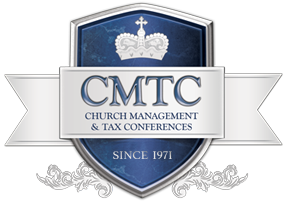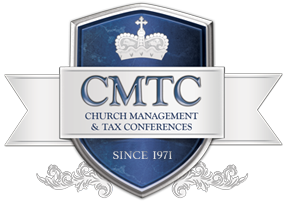Exercising Your Free Speech Rights May Cost You During an Election Year
As an election approaches, especially those that are Presidential, people get passionate in support or lack thereof for a particular candidate. This is especially true for Churches when one candidate seems to mirror their doctrinal beliefs while the other candidate is the antithesis.
Almost every election cycle, Churches find themselves in trouble with the Internal Revenue Service and the possible revocation of their 501(c)(3) status. According to IRS section 501(c)(3), a tax-exempt organization, including Churches and Religious Organizations, may not attempt to influence legislation as a substantial part of its activities and it may not participate in any campaign activity for or against political candidates. The Government does apply limitations on legislative and political campaign activities of Churches and Religious Organizations.
The above mentioned section also declares that any Church or Religious Organization that participates in the above mentioned activities could possibly experience revocation of its tax-exempt status.
But, What About Free Speech Rights?
As of now, any Church may exercise its right to Free Speech as provided by the U.S. Constitution. However, just because the Church engages in Free Speech, does not mean that Congress will subsidize it with tax exemptions for donations.
In other words, the Church may engage in all the political activity it chooses, but not with the benefit of tax deductible donations made to it.
Two No-No’s
As stated above, there are two functions in which any Church or Religious Organization should not engage:
- Substantial Efforts to Influence Legislation
- Political Campaign Activities
Let’s look at both.
Measuring Legislative Activity
There is nothing in the code that says a Church CANNOT attempt to influence legislation. The code demands that there be no SUBSTANTIAL efforts to influence the legislation. The whole issue is the size and scope of the Church’s or Religious Organization’s participation in such legislative influence when compared to all of the activities of the Church or Organization.
There are two tests that the Government may use to establish how substantial an organization’s attempt has been to influence legislation.
- The Substantial Part Test
- The Expenditure Test
Churches are not allowed the luxury of The Expenditure Test although this method may be used by other non-Church Religious Organizations. That leaves the Church with The Substantial Part Test as the only remaining option.
For this test “substantial” is determined on the basis of all other pertinent facts and circumstances in each case. Factors the IRS will consider are how much time is devoted toward the activity by compensated and volunteer workers, and the amount of funds devoted by the Church to the activity.
If the Church decides to participate in legislative activities, the Pastor and Church Leaders should determine the time and resources that will be required of the Church. Do everything necessary to avoid “substantial.”
Campaign Activities
The Internal Revenue Service strictly forbids Churches and Religious Organizations for participating, directly or indirectly in any political campaign on behalf of or against any candidate seeking elective office. The Church and Religious Organization are also not allowed to donate funds to or make public statements (oral or written) on behalf of or against any candidate.
The Church or Religious Organization cannot do anything that would favor any candidate over another.
Churches should play a role in the political process, but they should not cross the line and should always be cognizant that any role played is within Federal guidelines.
It is okay for a Church to invite a candidate to speak, but only if the same invitation and time allotted is granted to all candidates seeking that office.
If the Church has chosen to use voter guides, the Church must insure that: “any guides include a broad range of issues; do not compare the candidates’ positions on the political topics to the Church’s doctrinal beliefs; and the description of the political issues are neutral.”
Should the Church decide to conduct a political forum, it must exercise special care to ensure that all candidates for that office are invited; all questions should be prepared and presented by an independent, non-partisan panel; and the moderator should not comment or imply approval or disapproval of the candidates.
Although the IRS somewhat refrains from enforcing these limitation, the Church is not at liberty to violate the law. Remember, just because the IRS is hesitant does not mean they won’t. Don’t borrow trouble.
In Conclusion
The Church enjoys Freedom of Speech, but any tax benefits that are afforded are at the mercy of the rules and regulations of the IRS. Do not allow your zeal to cloud your wisdom. This is where we can help.
No one knows Church and Clergy Tax Laws better than Chitwood and Chitwood. Our 77 years of experience and dedicated professionals may us the number one firm in the nation. Contact us today at 800-344-0076.
Remember, with Chitwood and Chitwood it is “A Ministry – Not A Job!”

